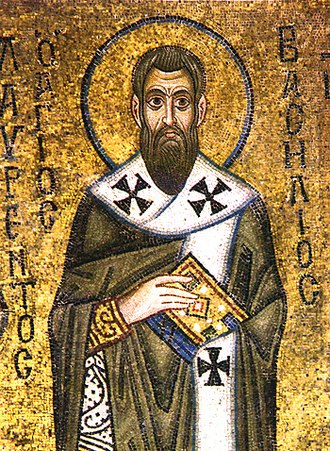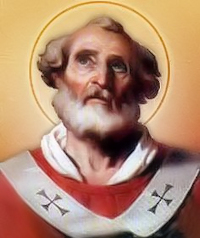CHAP. 13
13:10–17
10. And he was teaching in one of the synagogues on the sabbath.
11. And, behold, there was a woman which had a spirit of infirmity eighteen years, and was bowed together, and could in no wise lift up herself.
12. And when Jesus saw her, he called her to him, and said unto her, Woman, thou art loosed from thine infirmity.
13. And he laid his hands on her: and immediately she was made straight, and glorified God.
14. And the ruler of the synagogue answered with indignation, because that Jesus had healed on the sabbath day, and said unto the people, There are six days in which men ought to work: in them therefore come and be healed, and not on the sabbath day.
15. The Lord then answered him, and said, Thou hypocrite, doth not each one of you on the sabbath loose his ox or his ass from the stall, and lead him away to watering?
16. And ought not this woman, being a daughter of Abraham, whom Satan hath bound, lo, these eighteen years, be loosed from this bond on the sabbath day?
17. And when he had said these things, all his adversaries were ashamed: and all the people rejoiced for all the glorious things that were done by him.
AMBROSE.

He soon explained that He had been speaking of the synagogue, shewing, that He truly came to it, who preached in it, as it is said, And he was teaching in one of the synagogues.
CHRYSOSTOM.

He teaches indeed not separately, but in the synagogues; calmly, neither wavering in any thing, nor determining aught against the law of Moses; on the Sabbath also, because the Jews were then engaged in the hearing of the law.
CYRIL OF ALEXANDRIA.

Now that the Incarnation of the Word was manifested to destroy corruption and death, and the hatred of the devil against us, is plain from the actual events; for it follows, And behold there was a woman which had a spirit of infirmity, &c. He says spirit of infirmity, because the woman suffered from the cruelty of the devil, forsaken by God because of her own crimes or for the transgression of Adam, on account of which the bodies of men incur infirmity and death. But God gives this power to the Devil, to the end that men when pressed down by the weight of their adversity might betake them to better things. He points out the nature of her infirmity, saying, And was bowed together, and could in no wise lift up herself.
BASIL. (Hom. 9. in Hex.)

Because the head of the brutes is bent down towards the ground and looks upon the earth, but the head of man was made erect towards the heaven, his eyes tending upward. For it becomes us to seek what is above, and with our sight to pierce beyond earthly things.
CYRIL OF ALEXANDRIA.

But our Lord, to shew that His coming into this world was to be the loosing of human infirmities, healed this woman. Hence it follows, And when Jesus saw her, he called her to him, and said unto her, Woman, thou art loosed from thine infirmity. A word most suitable to God, full of heavenly majesty; for by His royal assent He dispels the disease. He also laid His hands upon her, for it follows, He laid his hands on her, and immediately she was made straight, and glorified God. We should here answer, that the Divine power had put on the sacred flesh. For it was the flesh of God Himself, and of no other, as if the Son of Man existed apart from the Son of God, as some have falsely thought. But the ungrateful ruler of the synagogue, when he saw the woman, who before was creeping on the ground, now by Christ’s single touch made upright, and relating the mighty works of God, sullies his zeal for the glory of the Lord with envy, and condemns the miracle, that he might appear to be jealous for the Sabbath. As it follows, And the ruler of the synagogue answered with indignation, because that Jesus had healed on the sabbath-day, and said unto the people, There are six days in which men ought to work, and not on the sabbath-day. He would have those who are dispersed about on the other days, and engaged in their own works, not come on the Sabbath to see and admire our Lord’s miracles, lest by chance they should believe. But the law has not forbidden all manual work on the Sabbath-day, and has it forbidden that which is done by a word or the mouth? Cease then both to eat and drink and speak and sing. And if thou readest not the law, how is it a Sabbath to thee? But supposing the law has forbidden manual works, how is it a manual work to raise a woman upright by a word?
AMBROSE.

Lastly, God rested from the works of the world not from holy works, for His working is constant and everlasting; as the Son says, My Father worketh until now, and I work; (John 5:17.) that after the likeness of God our worldly, not our religious, works should cease. Accordingly our Lord pointedly answered him, as it follows, Thou hypocrite, doth not each one of you on the sabbath-day loose his ox or his ass? &c.
BASIL. (Basil. Hom. 1. de Jej.)

The hypocrite is one who on the stage assumes a different character from his own. So also in this life some men carry one thing in their heart, and shew another on the surface to the world.
CHRYSOSTOM.

Well then does he call the ruler of the synagogue a hypocrite, for he had the appearance of an observer of the law, but in his heart was a crafty and envious man. For it troubles him not that the Sabbath is broken, but that Christ is glorified. Now observe, that whenever Christ orders a work to be done, (as when He ordered the man sick of the palsy to take up his bed,) He raises His words to something higher, convincing men by the majesty of the Father, as He says, My Father worketh until now, and I work. (John 5:17.) But in this place, as doing every thing by word, He adds nothing further, refuting their calumny by the very things which they themselves did.
CYRIL OF ALEXANDRIA.

Now the ruler of the synagogue is convicted a hypocrite, in that he leads his cattle to watering on the Sabbath-day, but this woman, not more by birth than by faith the daughter of Abraham, he thought unworthy to be loosed from the chain of her infirmity. Therefore He adds, And ought not this woman, being a daughter of Abraham, whom Satan has bound, lo, these eighteen years, to be loosed from this bond on the sabbath-day? The ruler preferred that this woman should like the beasts rather look upon the earth than receive her natural stature, provided that Christ was not magnified. But they had nothing to answer; they themselves unanswerably condemned themselves. Hence it follows, And when he had said these things, all his adversaries were ashamed. But the people, reaping great good from His miracles, rejoiced at the signs which they saw, as it follows, And all the people rejoiced. For the glory of His works vanquished every scruple in them who sought Him not with corrupt hearts.
GREGORY. (Hom. 31. in Evang.)

Mystically the unfruitful fig tree signifies the woman that was bowed down. For human nature of its own will rushes into sin, and as it would not bring forth the fruit of obedience, has lost the state of uprightness. The same fig tree preserved signifies the woman made upright.
AMBROSE.

Or the fig tree represents the synagogue; afterwards in the infirm woman there follows as it were a figure of the Church, which having fulfilled the measure of the law and the resurrection, and now raised up on high in that eternal resting place, can no more experience the frailty of our weak inclinations. Nor could this woman be healed except she had fulfilled the law and grace. For in ten sentences is contained the perfection of the law, and in the number eight the fulness of the resurrection.
GREGORY. (ut sup.)

Or else; man was made on the sixth day, and on the same sixth day were all the works of the Lord finished, but the number six multiplied three times makes eighteen. Because then man who was made on the sixth day was unwilling to do perfect works, but before the law, under the law, and at the beginning of grace, was weak, the woman was bowed down eighteen years.
AUGUSTINE. (Serm. 110.) That which the three years signified in the tree, the eighteen did in the woman, for three times six is eighteen. But she was crooked and could not look up, for in vain she heard the words, lift up your hearts.
GREGORY. (up sup.)

For every sinner who thinketh earthly things, not seeking those that are in heaven, is unable to look up. For while pursuing his baser desires, he declines from the uprightness of his state; or his heart is bent crooked, and he ever looks upon that which he unceasingly thinks about. The Lord called her and made her upright, for He enlightened her and succoured her. He sometimes calls but does not make upright, for when we are enlightened by grace, we ofttimes see what should be done, but because of sin do not practise it. For habitual sin binds down the mind, so that it cannot rise to uprightness. It makes attempts and fails, because when it has long stood by its own will, when the will is lacking, it falls.
AMBROSE.

Now this miracle is a sign of the coming sabbath, when every one who has fulfilled the law and grace, shall by the mercy of God put off the toils of this weak body. But why did He not mention any more animals, save to shew that the time would come when the Jewish and Gentile nations should quench their bodily thirst, and this world’s heat in the fulness of the fountain of the Lord, and so through the calling forth of two nations, the Church should be saved.
BEDE.

But the daughter of Abraham is every faithful soul, or the Church gathered out of both nations into the unity of the faith. There is the same mystery then in the ox or ass being loosed and led to water, as in the daughter of Abraham being released from the bondage of our affections.








